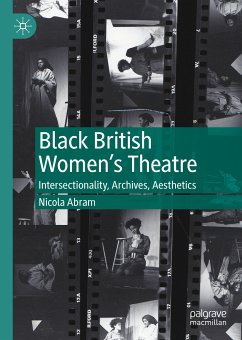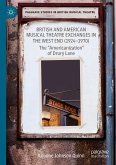Chapters focus on five theatre companies and artists, spanning several decades: Theatre of Black Women (1982-1988), co-founded by Booker Prize-winning writer Bernardine Evaristo; Munirah Theatre Company (1983-1991); Black Mime Theatre Women's Troop (1990-1992); Zindika; and SuAndi. The book concludes by reflecting on the politics of representation, with reference to popular postmillennial playwright debbie tucker green.
Drawing on new interviews with the playwrights/practitioners andtheir peers, this book assembles a rich, interconnected, and occasionally corrective history of black British women's creativity. By reproducing 22 facsimile images of flyers, production programmes, photographs and other ephemera, Black British Women's Theatre: Intersectionality, Archives, Aesthetics not only articulates a hidden history but allows its readers their own encounter with the fragile record of this vibrant past.
Dieser Download kann aus rechtlichen Gründen nur mit Rechnungsadresse in A, B, BG, CY, CZ, D, DK, EW, E, FIN, F, GR, HR, H, IRL, I, LT, L, LR, M, NL, PL, P, R, S, SLO, SK ausgeliefert werden.









